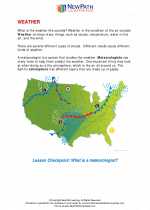Gene Flow
Gene flow, also known as gene migration, is the transfer of genetic variation from one population to another. This transfer can occur through the movement of individuals and their gametes (sperm and eggs) from one population to another. Gene flow can happen within a species or between different species, and it is an important evolutionary process that can have significant effects on the genetic diversity and adaptation of populations.
Mechanisms of Gene Flow
Gene flow can occur through several mechanisms:
- Migration: The movement of individuals from one population to another can introduce new genetic material into the receiving population.
- Dispersal of Gametes: The transfer of pollen, seeds, or spores can bring new genetic material to different populations.
- Hybridization: When individuals from different populations or species interbreed, their offspring may inherit genetic material from both parental populations.
Effects of Gene Flow
Gene flow can have several effects on populations:
- Increased Genetic Diversity: Gene flow can introduce new alleles (alternative forms of a gene) into a population, increasing its genetic diversity.
- Genetic Homogenization: Gene flow can also result in the mixing of genetic material between populations, leading to a reduction in genetic differences over time.
- Adaptation: The introduction of new genetic variation through gene flow can provide populations with the potential for adaptation to changing environmental conditions.
- Disruption of Local Adaptation: In some cases, gene flow can disrupt the local adaptations that have evolved in isolated populations, potentially reducing their fitness in their specific environments.
Study Guide
Here are some key points to remember about gene flow:
- Define gene flow and explain its importance in the context of evolution.
- Identify and describe the mechanisms through which gene flow can occur.
- Discuss the effects of gene flow on genetic diversity, population adaptation, and local adaptation.
- Compare and contrast the effects of gene flow on different populations and species.
- Provide examples of gene flow in natural populations and its potential impact on their evolutionary trajectories.
Understanding gene flow is essential for comprehending how populations evolve and adapt to changing environments. It is a fundamental concept in evolutionary biology and has implications for conservation, agriculture, and human health.
.◂Science Worksheets and Study Guides Third Grade. Weather

 Worksheet/Answer key
Worksheet/Answer key
 Worksheet/Answer key
Worksheet/Answer key
 Worksheet/Answer key
Worksheet/Answer key
 Vocabulary/Answer key
Vocabulary/Answer key
 Vocabulary/Answer key
Vocabulary/Answer key
